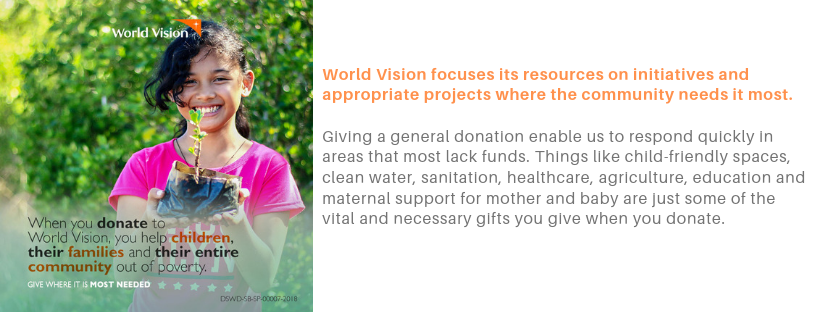Stakeholders assure support in boosting North Cotabato’s abaca industry
KIDAPAWAN CITY – February 2019, World Vision’s partners from different government line agencies like Provincial and City Agriculture Office, Department of Agrarian Reform Office, Department of Trade and Industry, Department of Labor and Employment, Philippine Fiber Industry and Development Administration- Region XI, and community partners affirmed their full support to the scaling up of abaca industry in North Cotabato.

“The country’s abaca pulp exports averaged to 20,382 metric tons (MT) from 2006 to 2015 with the current demand deficit of about 25,000 MT equivalent to more than 45,000 hectares of new abaca. It is therefore reassuring to have the different stakeholders’ nod for this initiative, which is under the Promoting Entrepreneurship and Livelihood (ProPEL) for Families project,” said Erber Fe Arro, World Vision’s program manager. ProPEL is a project that aims to provide training and livelihood opportunities for the most vulnerable families in the province and is funded by the Bank of America.
The affirmation came after World Vision presented the Abaca value chain report that highlights the results of the focused group discussions and key informant interviews among value chain players, influencers and capacity builders of the abaca industry in North Cotabato. Among the significant findings include:
- Farmers or producers in most cases are planting the wrong varieties or infected planting materials that need to be improved by establishing a community-based abaca seedling production using the tissue culture processes.
- There is discontent between the producers and laborers. Lack of access to capital, lack of knowledge of classifying and grading and value adding, adulteration of fiber, small-scale production, and weak farmers organization are also the common challenges that need immediate intervention on developing financing mix that will allow resource-poor households to have access to financing, marketing facilitation support and the capacity building program for the farmers organisation to know the standards in sorting and grading abaca fibres and engage into collective marketing.
- The absence of an organization that orchestrates a collective and coordinated value chain development has resulted in duplication of interventions particularly in technology training and distribution of planting materials. Other problems of regulation, financing, lack of marketing information and assistance and the lack of national government support have resulted in the abaca industry moving in snail-phase momentum that needs medium and long-term responses through the orchestration work of World Vision project in partnership with the Provisional Government and the Department of Agrarian reform and other local partners in the area.

“The landscape of abaca industry is not only on the framework of organizing local farmers but basically establishing a mechanism that development players could interplay in various levels. It aims to eventually contribute to the alleviation of poverty incidence, reduction of unemployment, and eradication of malnutrition and hunger,” explained value chain expert Jose Apollo Pacamalan.
The 2015 census in North Cotabato showed that out of the total population of 1,379,747, poverty incidence is at 44.8% among the inhabitants, which means that more than 600, 000 people or around 103 thousand households (in a family of 6) are living below poverty line. If identified challenges are addressed and if the industry is further developed, it could empower farmers and parents to better provide for their families. World Vision, which has been working in Kidapawan City for several years now, has so far distributed almost 10,000 tissue- cultured abaca to its assisted families but more work needs to be done. The development target is to have every resource-poor households to plant at least 1,000 abaca seedlings intercropped with other crops like coconut and forest trees so that it will provide them an additional income of at least 8,000 pesos per month after 18 months.
“This means that if all the necessary support infrastructures are present with the multi-stakeholder mechanism, we can bring these poor households to cross the line of poverty in three years,” Arro added.
Allan Masibay, the chairperson of the Federation of Abaca Producers in North Cotabato and one of the active community partners of World Vision, shared that their community is willing to sustain the abaca industry.

“We can help plant more abaca in our area. Our barangay local government unit can also help our farmers maintain almost 400- hectare watershed area which will not only protect our watershed but at the same time generate possible income for our community people,” he said.
The Technical Working Group for abaca industry will convene before the end of the first quarter of the year to draft a comprehensive value chain development program for abaca in support to the responsible scaling of the industry. It is hope that this development will contribute to 3% reduction of poverty annually after 18 months.

Stay up to date with World Vision Philippines! Follow us on Facebook, Twitter and Instagram.








